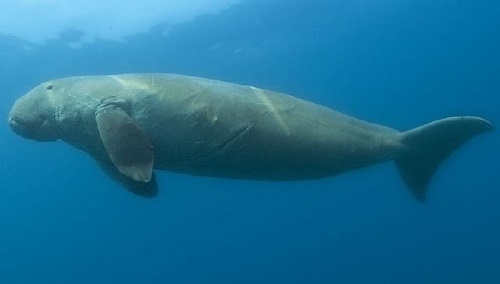N.B. Nair
Chennai (ISJ): The Tamil Nadu government on Wednesday (21 September) notified a protected region in the sea for the conservation of Dugong, an endangered marine animal. The Dugong Conservation Reserve covers 448 square kilometers of coastal waters of Thanjavur and Pudukkottai districts of the state in the Palk Bay.
Dugongs are the largest herbivorous marine mammals in the world thriving primarily on seagrass beds, a major carbon sink of the oceans. Conserving dugongs will help to protect and improve seagrass beds and sequestering more atmospheric carbon. Seagrass beds are also the breeding and feeding grounds for many commercially valuable fishes and marine fauna. Hence, thousands of fisher families depend on dugong habitats for livelihood.
Dugongs are protected under Schedule 1 of the Wild Life (Protection) Act, 1972. However, their population is on the decline due to habitat loss. There are only about 240 individuals estimated to be present in the country and the majority are found on Tamil Nadu coast.
The state government has also consulted with coastal communities, especially local fishermen, to assure them that the notification will not cause any new restrictions or regulations.
Dugongs are listed as vulnerable on the Red List of Threatened Species of the International Union for Conservation of Nature (IUCN). It is threatened primarily due to human hunting and fishing. It inadvertently gets trapped in fish and shark nets and dies due to lack of oxygen. They also get struck by boats and ships. Pollution in the sea from surrounding land kills seagrass beds, which also negatively affects the habitat of dugongs.
Dugongs belong to the Sirenia species; their mammary glands are akin to human breasts and their nursing behaviour. Because of this, some sailors call dugongs mermaids or sirens, from which the name was created. Interestingly, though dugongs are called ‘sea cows,’ they are more closely related to elephants than to cows.
Source: DIPR, Tamil Nadu Government
Image Courtesy: Wikipedia Commons


